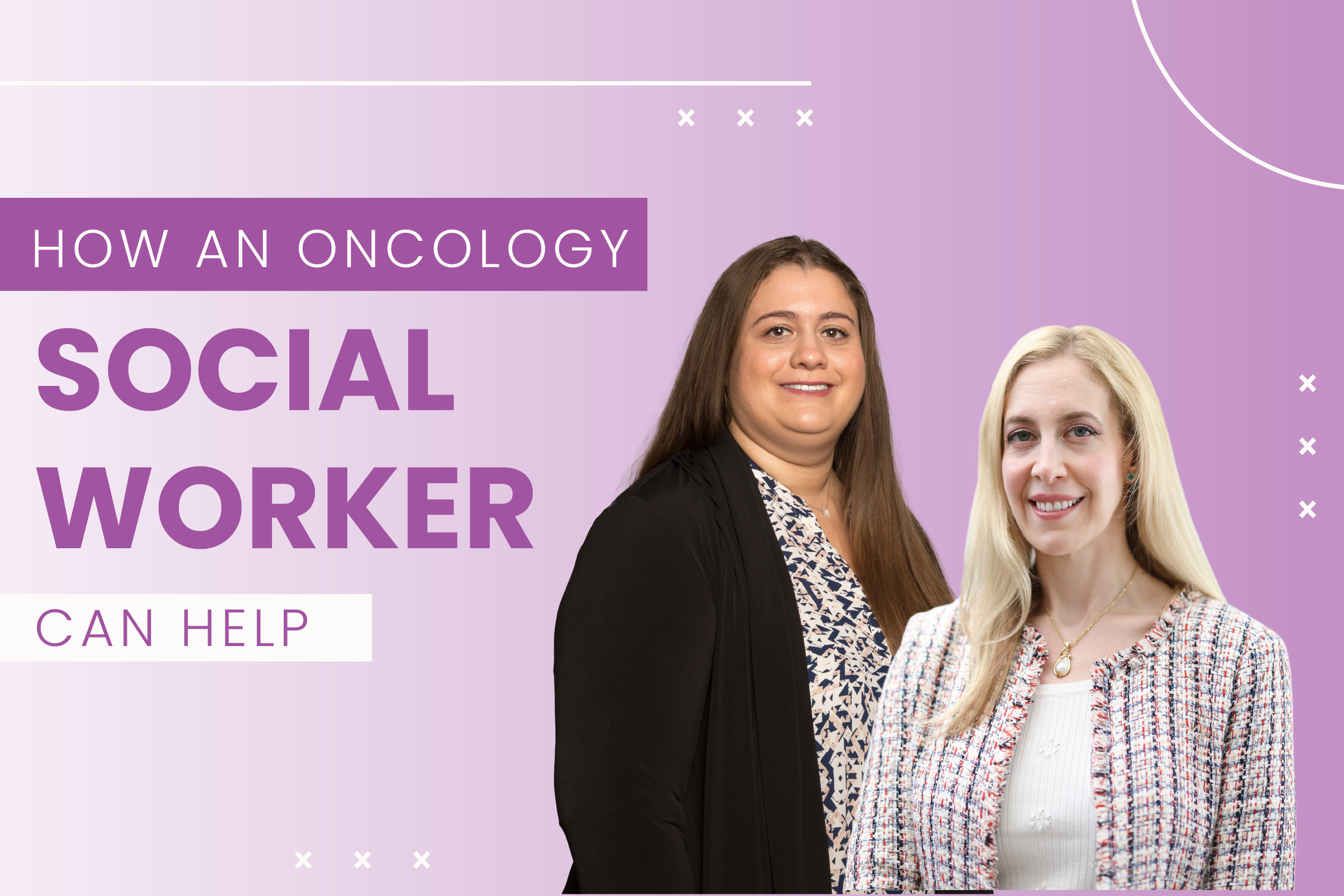How an Oncology Social Worker Can Help
March is National Social Work Month, a time to celebrate the hard work and dedication of oncology social workers, and the significant impact they have on supporting individuals and families affected by cancer. Oncology social workers are a pivotal part of a cancer care team and play a crucial role in helping patients, families, and caregivers navigate a cancer diagnosis, treatment, and remission.
From emotional support to answering practical and logistical questions about navigating cancer, licensed oncology social workers offer a variety of patient-related services, including:
-
Aid in making decisions about your treatment plan
-
Assist you with understanding your diagnosis and treatment
-
Help navigate questions about cancer care costs and health insurance
-
Financial assistance through grants/scholarships
-
Transportation limitations or issues
-
Supportive referrals for community agencies
-
Referrals to Benefits Counselors, Psychologist, Nutritionist, Chronic Care Management
-
Provide emotional support and brief counseling
-
Arrange for internal/external aide for household
-
Issues surrounding housing situation
-
Connecting patients and their families to support groups
-
Palliative and Hospice education
Oncology social workers typically work as part of oncology care teams, and meet with patients and families individually, or together as a family when needed. Oncology social workers can also help consult caregivers and family members about how to navigate their evolving role during their loved one’s cancer journey.
There can be a certain sense of isolation that accompanies a cancer diagnosis for both patients and family members, which is why attending cancer support groups can be beneficial for building community. Oncology social workers can either provide or offer resources for support groups for patients, family members, and caregivers.


